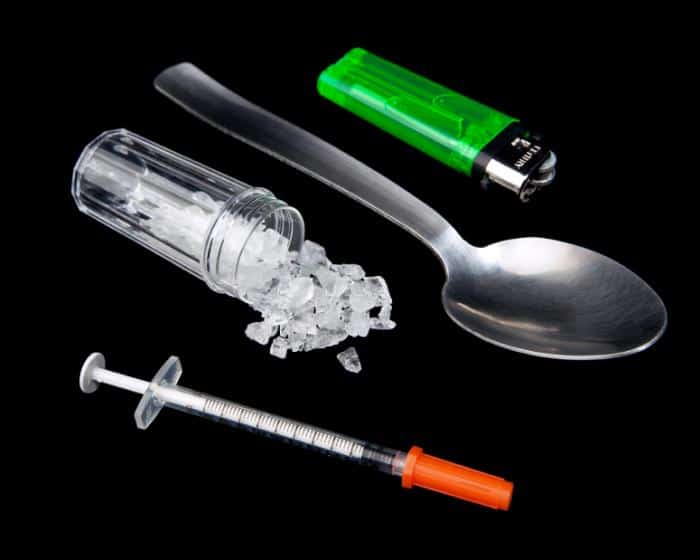
The February 14, Valentines Day fire inside a Tropicana hotel room resulted in the discovery of a make-shift meth lab and an arrest. The person who rented the room, Michael Pillar, 49, of Manchester Township, Ocean County, was charged with maintaining a controlled dangerous substance production facility, possession of methamphetamine, and criminal mischief.
The Atlantic City Fire Department responded to the Tropicana Casino for a report of a fire in a hotel room on the 44th floor of the West Tower. The hotel room bed and bathroom were in flames. The hotel’s sprinkler system helped keep the fire from spreading, said Scott Evans of the ACFD.
Several floors of the hotel were evacuated due to smoke. Guests on the 43rd, 44th, 45th and 46th floors were evacuated. As of Feb 15, the casino hotel is now back to operating business as usual.
During the course of the fire department’s investigation into the cause of the fire, police detectives were requested to the scene after the meth lab was located in the hotel room. The New Jersey State Police Hazardous Material Response Unit responded to the scene and dismantled the lab.
Tropicana surveillance officers were able to locate video footage of individuals that had fled the room and the hotel before the arrival of security and first responders. Detectives of the Special Investigations Section were able to quickly identify the two males and one female.
At 9:27 pm, Officers Latray Butcher and Branden Vongsasombath located all three individuals in the 2400 block of Pacific Avenue. They were taken into custody without incident. One male, Michael Pillar, was transported to the AtlantiCare Regional Medical Center, City Division, for treatment of injuries sustained in the fire.
All three were located in the 2400 block of Pacific Avenue around 9:27 p.m. and taken into custody. Two of them were let go without any charges.
An investigation by Detectives Jaimee Moore and Garry Stowe led to charges being filed against Pillar, who was the renter of the hotel room. The two other individuals were released with no charges.
This investigation was led by Detectives Jaimee Moore and Garry Stowe. The Atlantic County Prosecutor’s Office also assisted.
ARRESTED: Michael Pillar, a 49 year old male from Whiting, NJ.
CHARGES: Maintain a controlled dangerous substance (CDS) production facility, possession of CDS (methamphetamine), and criminal mischief.
Pillar was remanded to the Atlantic County Justice Facility.
Anyone with information about this incident is urged to contact the Atlantic City Police Department Special Investigations Section at 609-347-5858. Information can be text to tip411 (847411). Begin the text with ACPD. All texts are anonymous.
Crystal meth is short for crystal methamphetamine. It is just one form of the drug methamphetamine.
Methamphetamine is a white crystalline drug that people take by snorting it (inhaling through the nose), smoking it or injecting it with a needle. Some even take it orally, but all develop a strong desire to continue using it because the drug creates a false sense of happiness and well-being—a rush (strong feeling) of confidence, hyperactiveness and energy. One also experiences decreased appetite. These drug effects generally last from six to eight hours, but can last up to twenty-four hours.
WHAT IS METHAMPHETAMINE?
Methamphetamine is an illegal drug in the same class as cocaine and other powerful street drugs. It has many nicknames—meth, crank, chalk or speed being the most common. (See the list of street names.)
Crystal meth is used by individuals of all ages, but is most commonly used as a “club drug,” taken while partying in night clubs or at rave parties. Its most common street names are ice or glass.
It is a dangerous and potent chemical and, as with all drugs, a poison that first acts as a stimulant but then begins to systematically destroy the body. Thus it is associated with serious health conditions, including memory loss, aggression, psychotic behavior and potential heart and brain damage.